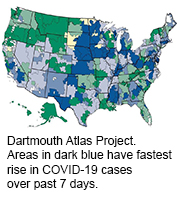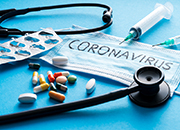
(HealthDay News) — The U.S. House passed a $484 billion deal on Thursday that would replenish a small business loan program that has run out of funding. The bill also directs more money to hospitals and COVID-19 testing. President Donald Trump is expected to sign the bill into law on Friday, the Washington Post reported.… read on >





























